La Rabbia is a italien film of genre Documentary directed by Pier Paolo Pasolini released in USA on 1 january 1963 with Pier Paolo Pasolini
La Rabbia (1963)
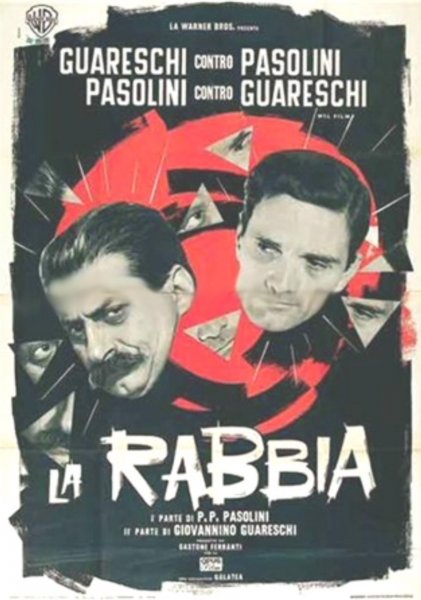
If you like this film, let us know!
La Rabbia ("Rage") is an Italian documentary film produced by Gastone Ferranti and directed by Pier Paolo Pasolini in the first half and by Giovannino Guareschi in the second half.
Film producer Gastone Ferranti wanted to make a movie with the two most important Italian intellectuals of the 1960s: Giovannino Guareschi and Pier Paolo Pasolini, despite them being diametrically opposite - one a right-wing Monarchist, and the other a Communist militant, and yet branded as "heretics" by their own side. The producer's goal was to make a sort of "match" where Guareschi and Pasolini gave their own answers to a single question, i.e. what was the cause of the discontent, of the fear and of the conflicts shaking the society of the time. The movie, analyzing the social conflicts of the contemporary world in a strongly critical and controversial way, was made through the montage of old footage from Ferranti's Mondo Libero newsreels, archive material concerning different countries, pictures from art books and magazines. Guareschi criticizes the degradation of art for commercial aims, and more broadly the "soulless" modernity wiping out any perspective other than materialism and, lastly, causes distrust towards the future. However, as Guareschi says at the end, "This is the planet where the Son of God chose to be born, to suffer and to die as a man." And for this reason "it's here, and not on the Moon, that we have to try and find the solution to our problems. Because in spite of Mao, Khruschev and other trouble, this planet is still worth living on [...] and hope is greater than fear in us."
In his part of the documentary, Pasolini deals with the 1956 Hungarian Revolution and of the Cuban Revolution, praises progressivism, decolonization and class struggle, he takes Marilyn Monroe's death as an example to speak about the death of beauty, complains about the disappearance of the rural world and heavily criticizes industrialization, conservativism, anti-communism and the burgeoisie. Part of Pasolini's film was cut to make room for Guareschi in the final cut.
Despite starting from opposite positions, Guareschi's and Pasolini's statements have some points of convergence, especially regarding the alienation and de-humanization in the modern world. It might even seem that both turned out to be prophetic, although in a negative way.
The film came out in 1963, but it was withdrawn from theatres just a few weeks later. The reason for this disappearance is not clear, however it might be conjectured that the victory of "reactionary" writer Guareschi was feared to cause such a scandal to bring about Ferranti's financial ruin. Pasolini's half had a limited circulation in later years, while Guareschi's half disappeared completely.
It was not until the 65th Venice Film Festival to see Pasolini's film being brought back into the light, restored and in an "extended director's cut" version. Giuseppe Bertolucci, the director of the restoration project, justified the absence of Guareschi's half by defining his statements on decolonization and on the Algerian War "intolerable". At the time Bertolucci was also the head of the committee for the celebrations of the centennial of Guareschi's birth: following his declarations, he obviously had to resign.[1]
Once the controversy blew over, Rage was shown at the "Fiuggi Family Festival" the following year, with both Guareschi's and Pasolini's part, to great acclaim of the public.
Synopsis
Montage d'archives d'actualité des années 1950 et 1960Actors
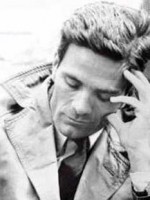
Pier Paolo Pasolini
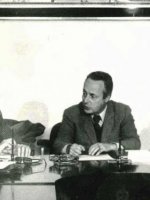
Giorgio Bassani
(Poetry Narrator - Part One (voice))
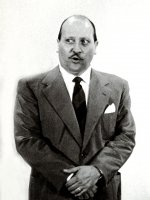
Carlo Romano
(Narrator - Part Two (voice))

Ava Gardner
(Self (archive footage))
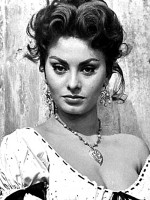
Sophia Loren
(Self (archive footage))
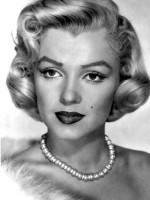
Marilyn Monroe
(Self (archive footage))
Comments
Leave comment :
Suggestions of similar film to La Rabbia
There are 25 films with the same actors, 23 films with the same director, 8862 with the same cinematographic genres, to have finally 70 suggestions of similar films.If you liked La Rabbia, you will probably like those similar films :

Notes for a Film in India (1968)
Directed by Pier Paolo Pasolini
Genres Documentary
Themes Documentaire sur une personnalité
Actors Khwaja Ahmad Abbas, Pier Paolo Pasolini, Rajinder Singh Bedi
Rating70%





En Inde, Pasolini pose la question : « Donneriez-vous votre corps pour nourrir des tigres qui meurent de faim ? ».

Love Meetings (1965)
, 1h30Directed by Pier Paolo Pasolini, Vincenzo Cerami
Origin Italie
Genres Documentary
Themes Films about sexuality
Actors Pier Paolo Pasolini, Antonella Lualdi, Alberto Moravia, Graziella Granata
Rating75%





Typical for him, Pasolini's subject is sex: he questions representatives from a variety of social brackets on topics such as virginity, prostitution, homosexuality and sex education. The overarching themes are sexual ignorance, confusion and conservatism.
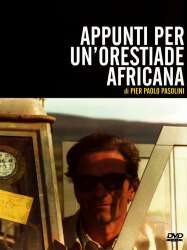 , 1h5
, 1h5Directed by Pier Paolo Pasolini
Origin Italie
Genres Documentary
Themes Films about films, Films based on mythology, Documentary films about business, Documentary films about the film industry, Documentaire sur une personnalité, Films based on Greco-Roman mythology, Documentary films about films, Autobiographical documentary films, Films based on Greco-Roman mythology
Actors Gato Barbieri, Pier Paolo Pasolini
Rating66%





En 1969, Pasolini voyage à travers la Tanzanie et l’Ouganda à la recherche des décors et des personnages de son prochain film : une adaptation de L'Orestie" d’Eschyle dans l’Afrique contemporaine. Il commente à voix haute, interroge les visages, les paysages, les situations et lit de larges et significatifs passages d’Eschyle. Il confronte ses idées, ses notes de voyage avec un groupe d’étudiants africains installés à l’université de Rome. Le film ne verra jamais le jour, mais ces notes filmées (et montées) par le cinéaste offrent une médiation sur l’indépendance, les promesses de la démocratie et le passage de l’âge archaïque à la civilisation moderne.

Scouting in Palestine (1965)
, 55minutesDirected by Pier Paolo Pasolini
Genres Documentary
Actors Pier Paolo Pasolini
Rating70%





Voyage de repérages en Terre Sainte.
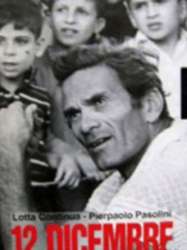
December 12th (1972)
, 1h44Directed by Pier Paolo Pasolini
Origin Italie
Genres Documentary
Themes Films about terrorism, Documentary films about terrorism
Actors Renzo Montagnani, Gian Maria Volonté
Rating65%





Documentaire sur les attentats de la piazza Fontana du 12 décembre 1969 de Milan.

The Canterbury Tales (1972)
, 1h58Directed by Pier Paolo Pasolini
Origin Italie
Genres Drama, Erotic, Comedy, Comedy-drama, Fantasy
Themes Poésie, Films about sexuality, Erotic films, LGBT-related films, Adaptation d'un poème, LGBT-related film
Actors Franco Citti, Ninetto Davoli, Laura Betti, Pier Paolo Pasolini, Hugh Griffith, Alan Webb
Rating63%





Near London, Oxford and Canterbury in the Middle Ages, stories and adventures of peasants, noblemen, clergy and demons are interwoven. In the first vignette of the film, the merchant Sir January loses his sight, allowing the bride to join with her young lover in secret. In the second story, the Devil ensures that two young peasants are killed by the arm of the Inquisition for their libertine pleasures. In the third, the fool Perkin is involved in an intrigue; he tries to find work, but his attempts ultimately wreak havoc in the city of Oxford. In the fourth story of two youths, Nicolas and Alison, seduce the wife of a carpenter, and when in danger of being caught, they pretend to be two visionaries who predicted the arrival of the new Flood. In the fifth, in the village of Bath, a matron marries Giannozzo; however, their happiness is short-lived. In the sixth story in Cambridge, two students spend fabulous nights with Molly, the wife of a miller. One night Molly, waiting to make love with each of the two boys, goes to bed believing that she is conversing with one of the youths, disclosing their secret. In fact, the one who is on the bed is the consort! In the seventh story three students, cruel in their actions, are achieved by an old man who predicts them to a bad end. Young guys do not get scared, but when the three ingest a poisoned wine, soon find themselves in the company of Gloomy Grim Reaper. In the eighth and final story, a pleasure-loving monk is trying to earn as much food in exchange for extreme unction to a dying man. That same night in the man's convent comes an angel, which leads him to Hell, to show him the terrible punishments that belong to the friars that subvert the message of Christ.

The Decameron (1971)
, 1h52Directed by Pier Paolo Pasolini, Sergio Citti
Origin Italie
Genres Drama, Comedy, Comedy-drama, Fantasy, Historical
Themes Seafaring films, Films about sexuality, Transport films, Erotic films, LGBT-related films, Films about prostitution, Erotic thriller films, LGBT-related film
Actors Franco Citti, Silvana Mangano, Ninetto Davoli, Pier Paolo Pasolini, Angela Luce, Guido Alberti
Rating69%





The film, shot in Neapolitan dialect at the behest of the director, offers a variety of episodes from the stories most characteristic work of Giovanni Boccaccio, and are connected by the sequence of a pupil of the painter Giotto (played by Pasolini himself) who arrives in Naples to paint a mural.
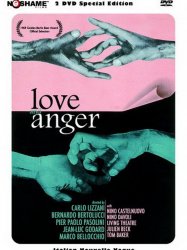
Love and Anger (1969)
, 1h42Directed by Marco Bellocchio, Carlo Lizzani, Bernardo Bertolucci, Jean-Luc Godard, Pier Paolo Pasolini, Elda Tattoli
Origin Italie
Genres Drama
Actors Marco Bellocchio, Julian Beck, James Anderson, Judith Malina, Milena Vukotic, Nino Castelnuovo
Rating57%





The film is composed of episodes that deal with some of the themes present in Jesus' parables and anecdotes of the canonical gospels. These issues, however, are reproduced in the present from their directors.
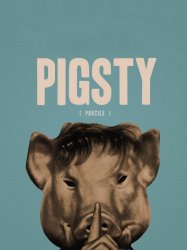
Pigsty (1969)
, 1h39Directed by Pier Paolo Pasolini, Sergio Citti
Origin Italie
Genres Drama
Themes Films about suicide, Volcanisme
Actors Pierre Clémenti, Jean-Pierre Léaud, Alberto Lionello, Ugo Tognazzi, Anne Wiazemsky, Margarita Lozano
Rating66%





The film features two parallel stories. The first one is set in an unknown past time and is about a young man (Clémenti) who wanders in a volcanic landscape (shot around Etna) and turns into a cannibal. The man joins forces with a thug (Citti) and ravages the countryside. At the end, his company gets arrested and during his execution, he recites the famous tagline of the film: "I killed my father, I ate human flesh and I quiver with joy." The story is about the human capacity of destruction and a rebellion against the social prerequisites implied against it.

Theorem (1968)
, 1h38Directed by Pier Paolo Pasolini
Origin Italie
Genres Drama
Themes Peinture, Films about sexuality, Bisexuality-related films, LGBT-related films, LGBT-related films, LGBT-related film
Actors Terence Stamp, Laura Betti, Silvana Mangano, Massimo Girotti, Anne Wiazemsky, Ninetto Davoli
Rating70%





A mysterious figure known only as "The Visitor" appears in the lives of a typical bourgeois Italian family. His arrival is heralded at the gates of the family's Milanese estate by an arm-flapping postman. The enigmatic stranger soon engages in sexual affairs with all members of the household: the devoutly religious maid, the sensitive son, the sexually repressed mother, the timid daughter and, finally, the tormented father. The stranger gives unstintingly of himself, asking nothing in return. He stops the passionate maid from committing suicide with a gas hose and tenderly consoles her; he befriends and sleeps with the frightened son, soothing his doubts and anxiety and endowing him with confidence; he becomes emotionally intimate with the overprotected daughter, removing her childish innocence about men; he seduces the bored and dissatisfied mother, giving her sexual joy and fulfillment; he cares for and comforts the despondent and suffering father, who has fallen ill.
 Connection
Connection